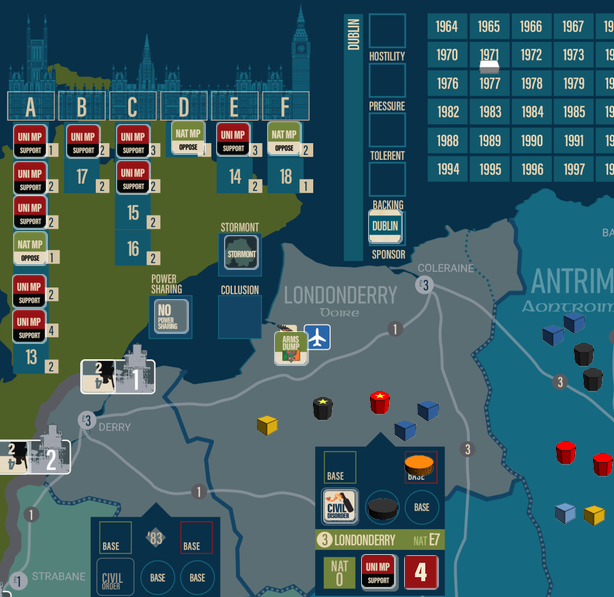The Troubles is NOT a game.
The Troubles IS an educational simulation.
The Troubles has been designed for teaching the complex historical, political, social and economic narratives that interwove a significantly important and deeply sensitive period of the 20th Century; one which continues to have domestic and international ramifications.
It has benefitted from international support spanning a variety of academic disciplines, including history, politics, literacy, counterterrorism and game design theory.
Why? As Vasily Grossman stated: “It is the writer’s duty to tell the terrible truth, and it is a reader’s civic duty to learn this truth. To turn away, to close one’s eyes and walk past is to insult the memory of those who have perished. Only those who have learned the whole truth can ever understand.” (Grossman, V. p165-66, 2011).
History Education seeks “to encourage rigorous and critical thinking about the past” (History and Scotland’s Curriculum for Excellence, British Educational Research Association, 2017).
The aim of this analog model is to facilitate this in a richer, more engaging format, providing challenging intellectual and ethical opportunities for reflexive learning that perhaps other more passive mediums – documentaries, books, films, etc. – cannot; “In the physical environment, it is impossible for [participants] to evade the consequences of off-kilter ethics” (Butler, p.110).
The Troubles allows its participants to co-construct an historically-accurate, complex narrative, “involving the reader in the story emotionally” (Osborne & Avraamidou (2009)).
The Troubles is not a game. The Troubles is an educational simulation. And Peace is the only successful outcome.
Pax Christi +
References
Butler, Joy. (2013). Situating Ethics in Games Education. Canadian Journal of Education, v36 n4 p93-114 2013.
Grossman, V. (2011). The Hell of Treblinka in The Road: Short Fiction and Essays (p165-66), Maclehose Press, 2011.
Malcolm, F. (2021). Teaching the Srebrenica Genocide, in History Teaching Review, Vol 27. (pp. 30-33) (Ed. Smith, J)
Osborne, Avraamidou (2009). The Role of Narrative in Communicating Science. International Journal of Science Education.
Smith, J. (2016): What remains of history? Historical epistemology and historical understanding in Scotland’s Curriculum for Excellence, The Curriculum Journal, DOI: 10.1080/09585176.2016.1197138
Vrasidas, C., Avraamidou, L., Theodoridou, K., Themistokleous, S. & Panaou, P. 2015. Science Fiction in Education: case studies from classroom implementations. Educational Media International.











Interesting
LikeLiked by 1 person
Hello, my name is Josue and Im from Spain. I have a blog when i interview designers of wargames and translate into spanish. I want and interview to talk about this game. Can you send me and email and i will send you the questionary or can you grant me sn email. Thank you
LikeLiked by 1 person
bluetanso@googlemail.com
LikeLike